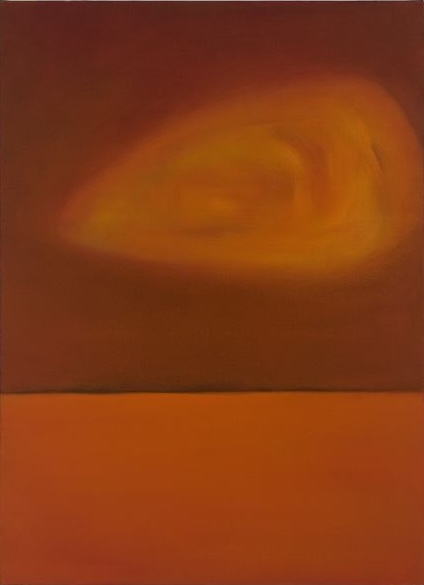The Daily Standing Prayer
Kavanah (Presence)
We stand, take three steps back—out of the ordinary—and three steps forward—into the sacred, and as we become present in the moment we chant the following contemplatively:
Ani poteakh et sfatai lehitpalel (masculine)
Ani potakhat et sfatai lehitpalel (feminine)
I open my lips for prayer
1. Imot ve’Avot (“Ancestors”)
Let us remember those who have come before us, who have given us life, love, and our culture. Such is our remembrance of the kindness and merits of our mothers and fathers. Zikkaron hasdei imot ve’avot, Sarah, Rachel, Rivkah ve’Leah, Avraham, Itzchak ve’Ya’akov
2. Kedushat haYom (“The Sanctification of the Day”)
(rising on the toes with each utterance of kadosh)
Kadosh Kadosh Kadosh kol yom, barukh eyn ha-hayyim bekhol yom
Holy, Holy, Holy is every day, blessed is the source of life in every day
3. Binah (“Understanding”)
May we have knowledge and understanding, for a mind of understanding and intellect is favorable. Berukhah ha-da’at – Blessed is Knowledge
4. Teshuvah (“Return”)
Shavim le’torat hayyim –We return to the torah of life and will be present in our actions. Blessed are they who return.
5. Selikhah (“Forgiveness”)
We seek forgiveness, for we have done wrong, and may we forgive abundantly and graciously those who have wronged us.
6. Geulah (“Redemption”)
Lema’an shalom ba’olam – for the sake of peace in the world, may we be redeemed speedily and let this be a geulah hazakah – a strong and sound redemption. Berukhah ha-geulah ha-hazakah – Blessed is the strong redemption.
7. Refuah (“Healing”)
(all present may say aloud or silently the name of someone who is sick)
Havah na’avod: l’rappe holim u’lekhalkel bri’ut, latet la’ayef ko’akh v’hayyim mekhudashim, lismokh noflim, lizkof k’fufim, l’hatir kol asurim, l’vattel gam betsa v’gam oni, l’taken et ha’olam.
Let us work: to heal the sick and sustain health, to give to the weary strength and life renewed, to support those who have fallen, to uplift those bowed down, to free all in bondage, to abolish both greed and poverty, to repair and improve the world.
8. Birkat Ha-shanim (“Blessing for good years and produce of the earth”)
Barukh ha-shanah hazot ve’kol tevuatah – Blessed is this year and its crops. May we be satisfied and have bounty, and may the year be like other good years.
(during the winter) Berukhim ha-ruakh va’gashem – Blessed is the wind and the rain
Berukhim ha-mevareikhim ha-shanim – Blessed are those who bless the years.
9. Galuyot (“Diasporas”) – solidarity and unity
Sound the great shofar for our freedom and raise a banner to unite our exiles and gather us together in solidarity wherever we may be in the four corners of the Earth. Blessed are those who unite the scattered peoples of Israel.
10. Birkat Ha-din (“Justice”)
May just judgment be restored to us, as it was in better times, and pure and good advice be bountiful. May sorrows and troubles be removed from us. We want to be governed with kindness compassion and to be justified in justice. Blessed are those who love Goodness and Justice.
11. Birkat HaMinim (“the Heretics”)
For racists let there be no hope. Let arrogant governments be speedily uprooted in our days. Let slander be destroyed in a moment. And let those who slander be not considered righteous. Blessed are those who humble the arrogant.
12. Tzedakah (“Righteousness”)
Upon the righteous, upon the elders of the People of Israel, upon the scholars, upon the Jews by Choice, and upon ourselves, may compassion arise. and may those who are sincerely faithful be rewarded. May we be included in their presence forever, and let us never be ashamed, for we also are faithful. Blessed are those who are strongholds of assurance and righteousness.
13. Boneh Yerushalayim (“Builder of Jerusalem”)
Return compassion to the city of Jerusalem, and may there be rest therein. May peace there be present, in our days, may this endure forever. May just government be established speedily. Blessed are the cities of peace.
14. Birkat David (“Blessing of David”)
May the peoples of the world have just rule, may that come speedily and let the people flourish, therein find salvation. This we hope all our days. Blessed are they who bring forth our salvation.
15. Tefillah (“Prayer”)
May our voices be heard, and may our words be received with pity and mercy, may our words find favor. May we not be turned away and left empty, but in mercy may our petitions be heard. Blessed are they who hear our wishes.
16. Avodah (“Service”)
May our people be accepted and received wherever we go, just as all peoples must be accepted. Let us restore the most blessed of services, our labors for love be received wherever we offer it. May our presence be as a service, pleasing to all. Blessed are those whose presence is a mercy.
17. Hoda’ah (“Thanksgiving”)
We are thankful forever and ever, from generation to generation. With thanks we sing and praise for our lives, and are trusting of each other. Every day is a miracle, wonderful and favorable at all times, in the evening, morning and afternoon. Goodness and compassion is never exhausted, and kindness is continual. In this we put our hope.
Ve’al kulam nitbarakh ve’nitromam tamid le’olam va’ed. We bless and exalt all these things, forever and ever more, and all the living shall confess this forever and praise this. In this let our salvation and help forever be!
18. Berukhim ha’tovim – Blessed are the good.
(stand and then bow) Modim anakhnu. We thankfully acknowledge this as we recite blessings of gratitude for having life and maintaining our existence. May our lives and our existence continue and be maintained, and may we dwell in safety. We will return to keep our covenant to repair the world, wholeheartedly. For this privilege we are grateful. Blessed are they who give thanks.
19. Hagah (“Meditation”) – time for private meditation
20. Sim Shalom – for peace, goodness, blessings, kindness and compassion
Sim shalom tova uvrakha, hen ve’hesed ve’rakhamim aleinu ve’al kol ha’amim berukhim kulanu ke’ekhad be’or ki ve’or yesh lanu torat hayyim ve’ahavat hesed u’tzedakah u’verakhah ve’rakhamim ve’hayyim ve’shalom. Ve’tov be’eyneynu levarekh ha’amim bekhol eit u’vekhol sha’ah bishalom. Berukhim hamevarkhim amim bashalom.
Grant peace, goodness and blessing, grace, kindness and compassion upon us and upon all the peoples, we bless all of us as one with light, as we have the torah of life and the love of kindness and righteousness and blessing and mercy, and life and peace. May it be good in our eyes to bless the people at every time an every hour with peace. Blessed are they who bless all people with peace.
(bow to the left) Na’aseh shalom ba’olam,
(bow to the right) na’aseh shalom aleinu,
(straighten up) ve’al kol Yisra’el, ve’al kol ha’olam, ve’imru amen.
Let us make peace in the world. Peace is our responsibility, the responsibility of all Yisra’el, and the responsibility of all peoples in the world. And let us say Amen.
May I guard my tongue from bad words, and my lips from speaking deceit.
And with those that curse me, let me be silent.
May all that rise against me be quickly nullified in their counsel.












